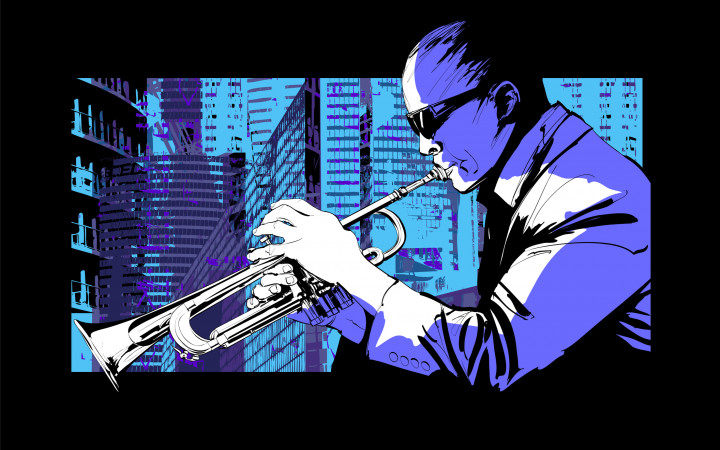Today’s Wonder of the Day was inspired by Su. Su Wonders, “Do you like Jazz?” Thanks for WONDERing with us, Su!
Cue the saxophones. Add in the trumpets and trombones. Now for the piano and drums. Sit back and enjoy the smooth rhythm they create. That’s right! Today’s Wonder of the day is all about jazz!
What is jazz? That’s a simple question with a tough answer. As you’ll soon learn, this type of music defies easy definition. Jazz legend Louis Armstrong may have explained it best. He once said, “If you have to ask what jazz is, you’ll never know.”
Jazz has been called “America’s Classical Music.” It came out of New Orleans, Louisiana, in the early 1900s. The city’s population was made of people from many cultures. Jazz came from a blend of their music styles. This included ragtime, marches, blues, and brass.
In the past 100 years, jazz has continued to evolve. It’s been led by brilliant musicians such as Louis Armstrong, Duke Ellington, Charlie Parker, and Miles Davis. Today, there are over two dozen distinct jazz styles. These include traditional jazz, swing, bebop, cool jazz, fusion, and jazz-rock.
Many describe jazz as unique in its variety. This directly results from its most key component: improvisation. In most jazz music, musicians play solos they make up on the fly. This results in jazz being as diverse as the people who play it.
Each Jazz musician carves out their own sound and style. For example, trumpeter Miles Davis can sound very different from trumpeter Louis Armstrong. This means listeners can hear several different recordings of the same song, and each will sound different! Jazz musicians can turn a familiar song into something new with each new improvised solo.
Most jazz is very rhythmic, possesses a forward momentum (called “swing”), and uses expressive notes (called “blue” notes). These notes are slightly lower in pitch than those on the major scale. You will also often hear “call and response” patterns, in which one instrument or voice answers another.
Do you like jazz? In such a diverse style of music, many people can find at least one jazz musician they enjoy. Today, this music provides entertainment for people all over the world!
Standards: CCRA.L.3, CCRA.L.6, CCRA.R.1, CCRA.R.2, CCRA.R.4, CCRA.R.10, CCRA.SL.1, CCRA.SL.2, CCRA.W.2, CCRA.W.9, CCRA.L.1, CCRA.L.2




